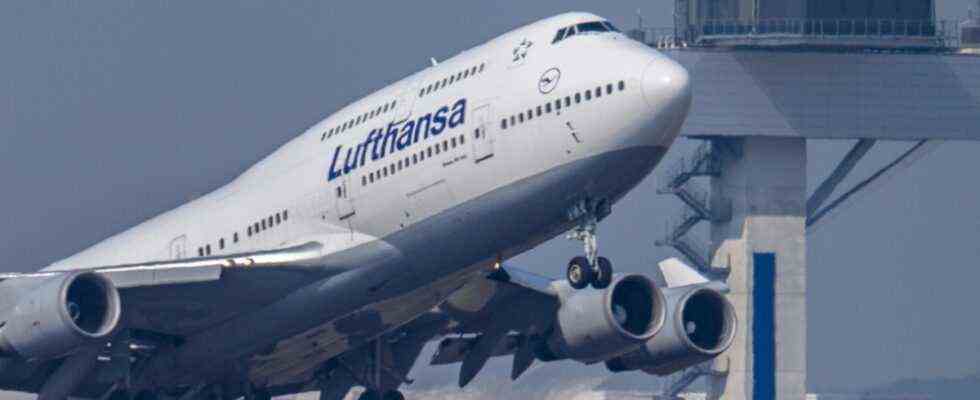Lufthansa CEO Carsten Spohr and his CFO Remco Steenbergen really did their best early Monday morning when they tried to make the capital increase that had just been announced attractive to investors. Spohr, for example, emphasized that you can now really see that business trips are coming back. Since the summer business went so well, Lufthansa will show an operating profit for the third quarter, according to Steenbergen. And in the current renovation, structural annual costs of 3.5 billion euros are being taken out of the company.
Nevertheless, the question arises: why now? The timing of the capital increase, through which Lufthansa is expected to accrue 2.1 billion euros, is not only “puzzling” in the opinion of Bernstein Research analyst Daniel Röska. After all, the share price has slipped steadily in recent weeks, the most important long-haul routes to the US are still largely closed for Europeans, demand is still well below pre-crisis levels, and capacity is expected to reach just half of 2019 by 2021. The question of who will actually be responsible for the federal government in Germany in the future and thus set the political direction in terms of environmental and air transport policy has not yet been answered and thus also contributes to the uncertainty. In short: Delaying the capital increase until at least the long haul has been released again, according to Röska, would have aroused more benevolence among investors. Above all, the company doesn’t need any fresh money at the moment.
The presumed answer to the timing question can be found in the small print, so to speak, and in the archive: Lufthansa wants to get rid of the state stake as quickly as possible, which it perceives to be too restrictive in terms of business and especially among those who have been with the group for a long time. old traumas served by too great a state influence. Back then, at the beginning of the 1990s, when Lufthansa had to cope with an existential crisis, it was still part of the state. On the other hand, it was only thanks to government intervention that it was able to avoid bankruptcy last year.
Germany, Switzerland, Austria and Belgium provided around nine billion euros in total – Lufthansa only had to use a fraction of this, because it was able to gain access to the capital markets again with bonds in autumn 2020.
The group actually wanted to have repaid the state aid by the time the general election was held
When Lufthansa presented the plans for a capital increase in the spring, Spohr had hoped that the airline would repay the state aid – if possible – before the general election. That didn’t work out, but at least she now has a clear schedule not only for this, but also for the exit of the Economic Stabilization Fund (WSF) as a shareholder. In October Lufthansa plans to repay 1.5 billion euros from the so-called silent participation 1, and another billion from silent participation 2 by the end of the year. Lufthansa will also cancel the unused portion of silent participation 1 amounting to three billion euros and thus no longer has access to it.
In this way Lufthansa avoids expensive interest rates, which would have risen sharply in the coming years for the aid. However, the consequences for the actual state participation are also decisive: The WSF currently holds a 15.84 percent stake in Lufthansa. Should he participate in the capital increase, he undertakes to start selling his shares after six months at the latest and must have parted with the entire package after two years at the latest. The WSF does not want to comment on the subject until the subscription period has ended on October 5th.
Should he exercise all subscription rights, he would have to pay 340 million euros for the shares, but he could also sell the rights in whole or in part. Since the shares are being offered significantly below the current market price, the federal government could probably achieve a significant book profit if they were sold at a later date. The WSF had acquired the original stake of 20 percent for a price of 2.50 euros, but had already sold part of it at a large profit.
Lufthansa is offering the new shares at a high discount: They should cost 3.58 euros in the course of the capital increase, 56 percent below the closing price last Friday. Shareholders can buy one more share for each share they hold. However, a consortium of 14 banks fully guarantees the capital increase. Several investment funds managed by Black Rock have undertaken to fully exercise subscription rights with a volume of EUR 300 million. And all Lufthansa executive boards also want to buy as many shares as they are allowed to.

